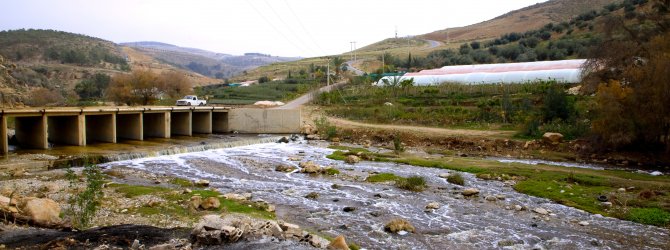-
The Value of Membership Chains: The CAN Arab World Network
The Value of Membership Chains: The CAN Arab World Network

Today, the fight for action to tackle climate change is at its peak. Action must be strategically coordinated, in order to create a higher impact. Here, the importance of an action like the Climate Action Network shines.
On the 28 of May 2016, the West Asia North Africa (WANA) Institute attended its first meeting as a member of the Climate Action Network (CAN) Arab world. The possibilities and opportunities of future cooperation between CAN members were discussed, in anticipation of the 22nd session of the Conference of the Parties to the UNFCCC (COP22), which is scheduled to take place in Marrakech in November this year.
CAN is a worldwide network that gathers over 1100 Non-Governmental Organisations (NGOs) in more than 120 countries around the Globe. CAN members work together towards promoting governmental and individual action to limit human-induced climate change to ecologically sustainable levels. CAN’s vision is to protect the atmosphere, while allowing for sustainable and equitable development worldwide.
The WANA Institute’s membership with CAN is significant for two reasons. First, WANA will benefit from the diverse and heterogeneous environment of the Network, which is a global platform to exchange information and coordinate development on international, regional, and national climate issues. It involves stakeholders from different backgrounds, working in different fields related to climate change and renewable energies. Members include community-based organisations, non-governmental organisations, and advocates for climate change and sustainable development. This diversity makes CAN a cradle of ideas and the ideal environment for a think tank such as WANA to grow and develop.
Second, through its membership, the WANA Institute can bridge the gap between environmental practitioners and activists, and between policy makers and academia. When it comes to issues of climate change, deforestation, and water scarcity, advocates and academics usually take a clear stand on the matter. However, their positioning rarely reaches governments, whose practices are not easily influenced. WANA proposes itself as a link that can reconcile research, advocacy and policy implementation.
That is not to say that the work of academia is to be underestimated. Academia and think tanks add incommensurable value to the network, through their research, which advises the public and policy makers to design effective policies. CAN represents a group of interconnected members, within which WANA fits strategically. If we picture existing members in an input-output formula within the CAN Arab world network, we can find two outputs: organisations that target local communities, and organisations that advocate for change and lobby for action on a policy level. On the other hand, academia and think tanks act as inputs, since their role is to provide an evidence base for advocates and policy makers.
CAN recently established a new branch (or ‘node’, as CAN likes to call it) in the Arab world, that will be working on climate protection and the shift towards renewable energies. The new node will also advance strategies for reducing carbon emissions. The establishment of the Arab node comes at a crucial time, given the widespread and adverse effects of climate change in the region. Such impacts include increasing drought and variable precipitation patters that adversely affects agricultural productivity and water scarcity.
In this regard, the value of platforms such as CAN is invaluable, and we, as WANA, are proud to promote environmental protection through its membership.

